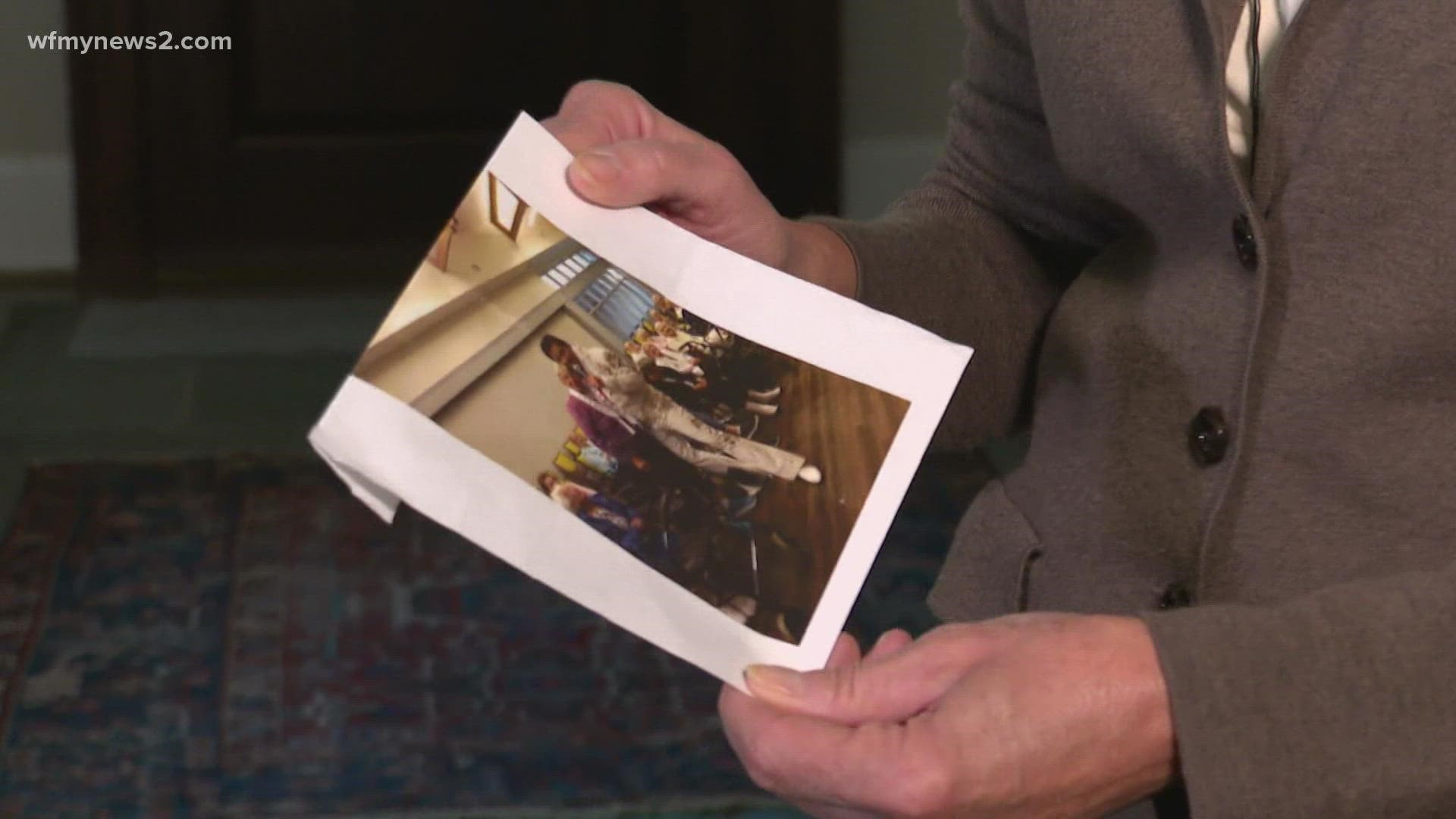WINSTON-SALEM, N.C. — Wendy Brenner of Winston-Salem remembers her mother Nancy Halewood as feisty and opinionated. Her mother was also a psychiatric nurse and a single mother of three.
“She was a big reader, loved jazz, the beach, her dogs,” Brenner said. “She was like a very strong independent person.”
At age 78, doctors diagnosed Halewood with Alzheimer’s disease. As the progressive brain disorder worsened, she was moved to a long-term care facility completely dependent on staff and her family.
“She was in the facility for a total of three and a half years,” Brenner said.“It’s three miles away. In the beginning, I would go more like every day. I’d take her out and still take her to church on Sundays. That was really important to her.”
COVID-19 led to lockdowns at long-term care facilities and put daily in-person visits on hold.
“Nobody really anticipated how long it was going to go,” Brenner said.
For an entire year, Brenner could only communicate with her mother through phone calls, video messages, and window visits. She said the social isolation accelerated her mother’s cognitive decline and ultimately led to her death in May.
“I called the nursing home supervisor, the administrator, and I said I just can’t do this,” Brenner said. “My mom has lost 35 pounds. She’s completely different. She’s so stressed and agitated and anxious. She’s in a wheelchair all the time. At some point, she was just going around and around and around the unit in her wheelchair. Like that’s all she did.”
WFMY News 2’s Lauren Coleman asked Brenner what the most difficult part was of being separated from her mother for so many months.
“I tell people my mother didn’t die of a COVID disease, but she did die from the pandemic,” Brenner said. “I believe that, my sister believes that. She deteriorated so much in that year that she just passed, and she was alone. So, I feel bad about that because I thought I would be there.”
According to the Alzheimer’s Association, 42,000 more people died from Alzheimer’s and other dementias in 2020 compared to averages over the previous five years.
Katherine Lambert is the CEO of the Alzheimer’s Association’s Western Carolina Chapter.
She said the organization’s call volume went up significantly at the start of the pandemic from caregivers like Brenner.
“The social interaction is how we connect as humans,” Lambert said. “Someone living with the disease, Facetime, Skype, video, they may not understand that they’re not watching a television program. They may not understand this is their loved one and they’re just working to communicate.”
Lambert said increased age, communal living, and challenges in practicing safe hygiene made patients more vulnerable.
“What we know antidotally from families is that they have seen the decline in their loved one, whether that is an inability to speak, the ability for mobility, increased agitation," Lambert said. "You know social isolation can increase anxiety and depression.”
Lambert said the association continues to work with lawmakers to find ways to keep populations safe from COVID while creating opportunities for responsible interaction.
Gov. Roy Cooper signed House Bill 351 also known as “Clifford’s Law.”
The legislation requires the Department of Health and Human Services secretary to establish visitation protocols for long-term care facilities during emergencies.
Trey Bateman, M.D. is a cognitive neurologist at Atrium Health Wake Forest Baptist. He’s spent the last 20 months researching the impact of stress and loneliness related to the pandemic on cognitive decline.
“This is a complex story that brings together the consequences of a viral pandemic, social policy over the last 50 or 60 years in the U.S. health system, and how we globally view treating older adults who have dementia,” Bateman said.
While caregivers like Brenner may have lost loved ones and quality time due to facility lockdowns, she hopes others can find the value in human interaction.
“I don’t know where we’re standing with the pandemic going forward, but if we ever have to do things like this, I hope they do it differently," Brenner said.
This holiday season might be the first time some families have seen certain loved ones in well over a year. Throughout the season, the Alzheimer’s Association is offering a free virtual education program providing tips to make the holidays safe and enjoyable for families.

